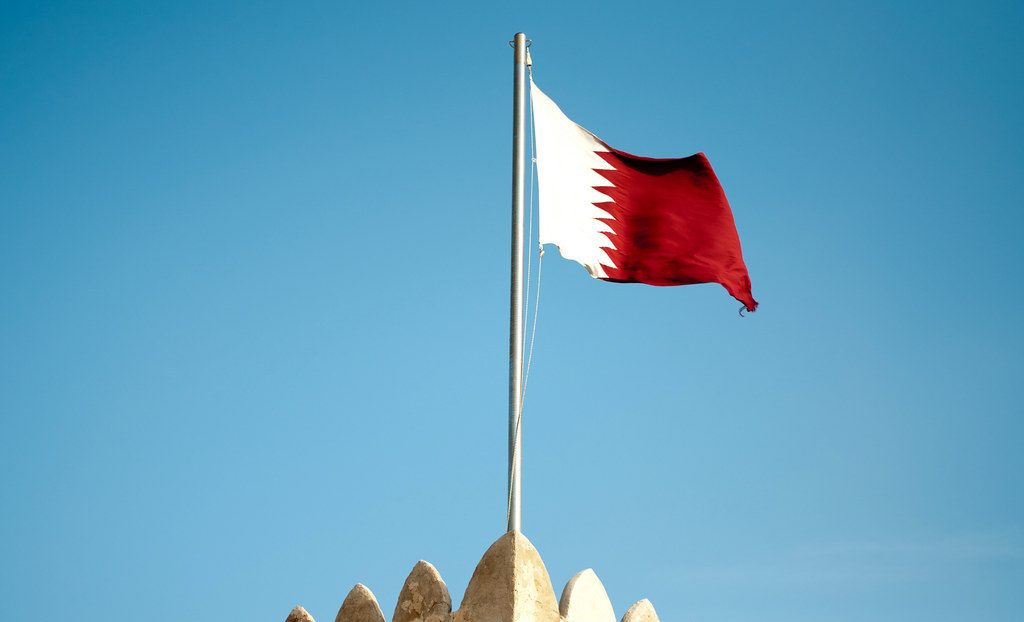
Qatar has taken a number of new counterterrorism measures in recent years to secure its critical infrastructure, as well as to prevent the country from becoming a hub for foreign fighters traveling to and from Syria, a recently released US report has revealed.
As part of its strategy, the government has restructured its National Anti-Terrorism Committee.
The committee is comprised of representatives from more than 10 government ministries and official institutions, the US State Department’s 2014 Country Reports on Terrorism stated.
According to the US, terrorist activity has historically been low in Qatar, due to the country’s “restrictive” immigration policies, and the monitoring capabilities of the government’s security services.

The report painted a picture of close cooperation between the US and Qatar, but said joint efforts are hampered by the Gulf state’s lack of resources – specifically, the limited number of highly trained police officers in a country that relies on expats to fill rank-and-file law enforcement positions.
The document did not discuss any specific threats facing Qatar or mention any specific enforcement action beyond the deportation of a Jordanian”terrorist financier” who worked for an unnamed local charity and the barring of “multiple individuals of concern” from entering the country.
Nevertheless, the US report added that the Qatar government remains concerned that the nation could be used as a base for foreign fighters in Syria, “as well as the possibility that violent extremists could seek to commit terrorist acts in or from Qatar using Qatar’s internet or financial systems.”
To combat this threat, the country is keeping a closer eye on international money transfers, the online activity of residents and who is coming into the country.
Electronic intelligence
The US said Qatar conducts “extensive” background checks on work visa applicants and captures biometric information on everyone who enters the country – likely through the retina scan at immigration counters.
Additionally, Qatar maintains its own watchlist of suspected terrorists that it uses to screen air passengers, the US State Department said.

It’s not explicitly stated if Qatar’s intelligence officers share the names of individuals on its watchlist – or the biometric information it collects at the airport – with the US or any other country. However, the US says Qatar is “generally responsive” to American requests for information.
The process of sharing information with foreign security agencies is also highlighted in Qatar’s new cybercrime legislation, which was signed into law last September.
According to the US, its provisions expanded the capabilities of law enforcement outside of Qatar by establishing formal procedures for requests for information from foreign governments.

Qatar’s cybercrime law – which has been criticized for provisions on so-called “content crimes” that make it illegal to publish “false news” and content that violates the country’s “social values” or “general order” – also gives law enforcement new investigative tools, including a greater ability to monitor internet traffic and other electronic data.
Unless otherwise exempted, professional organizations such as law firms must comply with requests to turn over electronic information – even if it violates a company’s professional confidentiality policies or agreements – made under the cybercrime law, the US report states.
Other measures under the cybercrime law make it a crime to use the internet to raise money in support of terrorism, the US State Department says.
Fundraising
Qatar has previously been criticized for allowing controversial individuals and organizations to raise funds with impunity. Last year, a German government minister suggested Qatar is among ISIL’s financial supporters, a claim that was sharply denied by Qatar government officials.
However, the US says Qatar has taken steps to reduce the amount of money flowing through the emirate to armed organizations in the region that are at odds with the US and other western governments.
In addition to making it more difficult for charities to send money abroad, the US said Qatar shut down the Madad Ahl al-Sham (also spelled “Madid” in English) online fundraising campaign that was suspected of sending money to violent extremist elements in Syria.”
The Washington Post reported that the organization was cited by Jabhat al-Nusra – which had pledged loyalty to al-Qaeda leader Ayman al-Zawahiri – as one of the preferred conduits for donations intended for the group.

Separately, the US government highlighted how Qatar’s Emiri Air Force was part of a US-led coalition that bombed ISIL targets in Syria last fall.
While it’s believed that Qatar’s planes played a supporting role and did not actually drop any ordinances, the US report said the country is keen to play a larger role in the Syrian conflict.
Specifically, it stated that Qatar has volunteered to host a facility where “moderate Syrian opposition forces” can be trained and receive equipment.
There are signs the US may have already taken Qatar up on its offer. Last year, a US documentary reported that dozens of fighters opposed to Syrian President Bashar Al Assad were receiving American military training in Qatar, near the Saudi Arabian border.
Thoughts?







